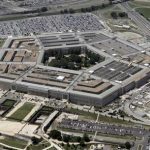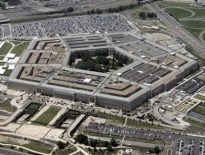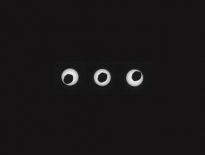(Reuters) – The British government has asked the New York Times to destroy copies of documents leaked by former National Security Agency contractor Edward Snowden related to the operations of the U.S. spy agency and its British partner, Government Communications Headquarters (GCHQ), people familiar with the matter said.

The British request, made to Times executive editor Jill Abramson by a senior official at the British Embassy in Washington D.C., was greeted by Abramson with silence, according to the sources. British officials indicated they intended to follow up on their request later with the Times, but never did, one of the sources said.
On Friday, in a public statement, Alan Rusbridger, editor of the Guardian, said his newspaper, which had faced threats of possible legal action from British authorities, on July 20 had destroyed copies of leaked documents which it had received from Snowden.
Rusbridger said that two days later, on July 22, the Guardian informed British authorities that materials related to GCHQ had made their way to the New York Times and the independent investigative journalism group ProPublica.
Rusbridger said in his statement that it then took British authorities “more than three weeks before anyone from the British government contacted the New York Times.
“We understand the British Embassy in Washington met with the New York Times in mid-August – over three weeks after the Guardian’s material was destroyed in London. To date, no-one has contacted ProPublica, and there has been two weeks of further silence towards the New York Times from the government,” Rusbridger said.
Rusbridger added that, “This five week period in which nothing has happened tells a different story from the alarmist claims made” by the British government in a witness statement it submitted on Friday to a London court hearing regarding an investigation by British authorities into whether the handling of Snowden’s leaks violated British anti-terrorism and official secrets laws.
A spokesman for the British Embassy in Washington told Reuters: “We are not going to get into the specifics about our efforts but it should come as no surprise if we approach a person who is in possession of some or all of this material.”
The spokesman added: “We have presented a witness statement to the court in Britain which explains why we are trying to secure copies of over 58,000 stolen intelligence documents – to protect public safety and our national security.”
A spokeswoman for the New York Times said the paper had no comment.
The British investigation was opened after authorities at London’s Heathrow Airport earlier this month used an anti-terrorism law to detain David Miranda, the domestic partner of Glenn Greenwald, a Guardian writer who has met with Snowden and has played a lead role in writing about material the former NSA contractor leaked.
Miranda was held and questioned for nine hours before being allowed to resume his trip from Berlin to Rio de Janeiro, where he and Greenwald live. Greenwald has said that Miranda had carried Snowden related material from him in Brazil to Laura Poitras in Berlin, an American film-maker who has also met with Snowden, and that Miranda was carrying Snowden-related materials which Poitras gave to him back to Greenwald.
In her witness statement submitted to the British court on Friday, Detective Superintendent Caroline Goode, who said she was in charge of Scotland Yard’s Snowden-related investigation, said that among materials officials had seized from Miranda while detaining him was an “external hard drive” containing data encrypted by a system called “True Crypt,” which Goode said “renders the material extremely difficult to access.”
Goode said the hard drive contained around 60 gigabytes of data, “of which only 20 have been accessed to date.” She said that she had been advised that the hard drive contains “approximately 58,000 UK documents which are highly classified in nature, to the highest level.”
Goode said the process to decode the material was complex and that “so far only 75 documents have been reconstructed since the property was initially received.”
Goode also said that it was “likely” that Scotland Yard “is investigating a conspiracy with a global dimension. It is necessary to ascertain if this stolen, classified material has been disseminated to others in order to prevent further disclosure which would prove valuable to terrorists, thereby preventing further offences and protecting public safety.”
She also said that “Disclosure of any information contained within those documents would be gravely injurious to UK interests, would directly put lives at risk and would pose a risk to public safety and diminish the ability to counter terrorism.”
(Reporting By Mark Hosenball; Editing by Tim Dobbyn)





